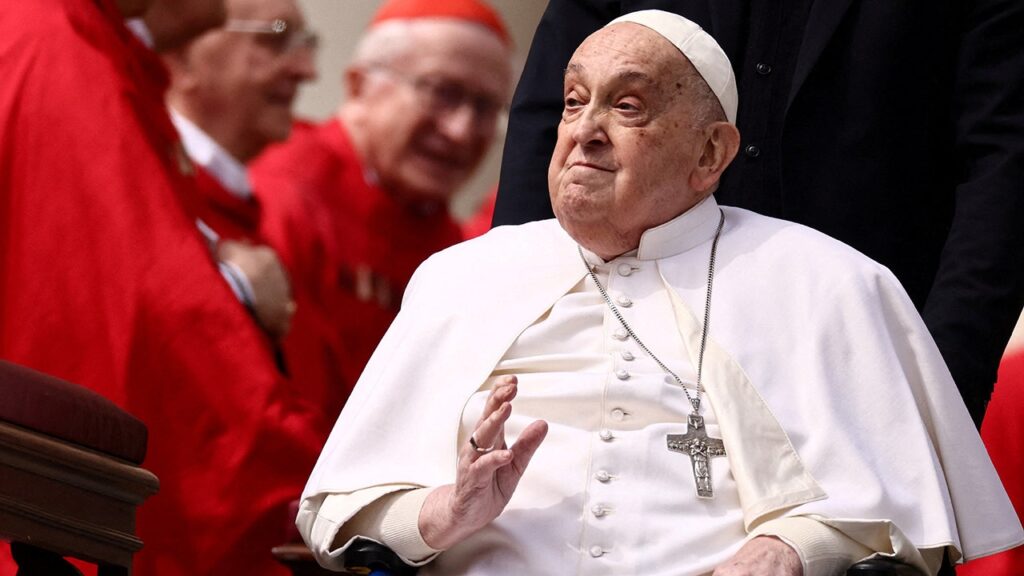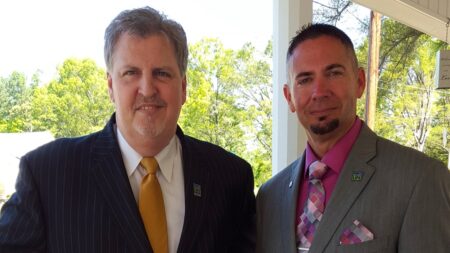On April 21, 2025, the global community was met with the somber news of the passing of Pope Francis, who died at the age of 88. Serving as the pontiff for 12 years, he was notable for being the first Jesuit to hold this esteemed position in the Roman Catholic Church. As the world grapples with this loss, faith leaders from various backgrounds have been sharing their reflections on his legacy and influence, demonstrating the profound impact he had not only on the Catholic faith but on broader societal issues as well.
Dr. Alex McFarland, a recognized expert in youth, religion, and culture, expressed his condolences to Fox News Digital, emphasizing the unity that exists among Christians regardless of denominational lines. He highlighted that the belief in the Triune God and in Christ brings together believers from different backgrounds, encouraging everyone to extend their prayers to the grieving Catholic community. McFarland, who serves as the director of worldview at Charis Bible College in Colorado and is widely known for his work on American Family Radio, called for divine guidance for the Catholic Church during this transition.
Pastor Wendell Vinson, the co-founder of CityServe located in Bakersfield, California, acknowledged the communal mourning alongside the Catholic Church and broader faith communities around the globe. He described Pope Francis as a figure known for his humility, a quality that defined his service and his commitment to the marginalized. Vinson lauded the late pontiff’s work done on behalf of the persecuted and oppressed, underscoring the value of interfaith collaboration that he sought to inspire within various communities.
Bill Donohue, president of the Catholic League, spoke on the profound effect Pope Francis had on millions, both Catholics and non-Catholics alike. He noted that the pontiff’s unscripted and often spontaneous manner of speaking contributed to his authenticity. While this candid approach garnered admiration, it sometimes led to misunderstandings, especially during interactions with the media, where his words required clarifications from the Vatican. Donohue pointed out that, despite some controversies toward the end of his pontificate, such as his stance on blessing same-sex couples, Pope Francis maintained a strong defense of traditional Catholic teachings on important moral issues.
Pastor Jesse Bradley from Grace Community Church, outside Seattle, reflected on the biblical call to pray for leaders. He emphasized the significance of Pope Francis’ heartfelt leadership, particularly during difficult times such as the pandemic. Bradley noted that the timing of his death, occurring shortly after Easter, served as a powerful reminder of hope and resurrection in the Christian faith—an embodiment of the notion that even in death, Jesus brings life and promotes eternal hope.
Expressing gratitude for the late pontiff’s service, Jeff King, president of International Christian Concern, acknowledged Pope Francis’ genuine heart for the poor. He emphasized the need for renewed commitment within the Catholic Church to adhere to Biblical teachings despite theological differences with evangelical Christians. King articulated a shared belief in the message of Jesus Christ as humanity’s only source of hope, suggesting that Pope Francis’ legacy and the Catholic Church’s future could benefit from an emphasis on unity in faith.
Archbishop Timothy P. Broglio, president of the U.S. Conference of Catholic Bishops, provided a heartfelt statement commemorating Pope Francis’ outreach to marginalized individuals. He stressed the importance of mercy and hope in the Church’s mission, encouraging believers to continue spreading the Gospel following the late pontiff’s vision.
Archbishop Joseph D’Souza commented on Pope Francis’ commitment to fostering understanding and unity in an increasingly divided world. He reminded all faith leaders that the Church’s mission must extend beyond denominational boundaries, symbolizing a call for love and dignity for every individual, irrespective of their circumstances.
Finally, Rev. Robert Sirico offered an insightful reflection on the nature of Pope Francis’ pontificate, describing it as both disruptive and ambiguous. He remarked on the historical significance of his election as the first pope from the Americas, hinting at the potential for future papal elections to continue reflecting the Church’s global diversity, especially as it grows in Africa.
The passing of Pope Francis marks an important moment in contemporary religious history, reflecting a blend of loss, celebration of service, and hope for continued unity among believers around the world. As individuals from varied backgrounds remember him, his legacy endures in the call for compassion, outreach, and the commitment to living out the message of love taught by Jesus Christ. During this time of grief, many find comfort in the values he championed and the ongoing mission of the Church he so profoundly impacted.











